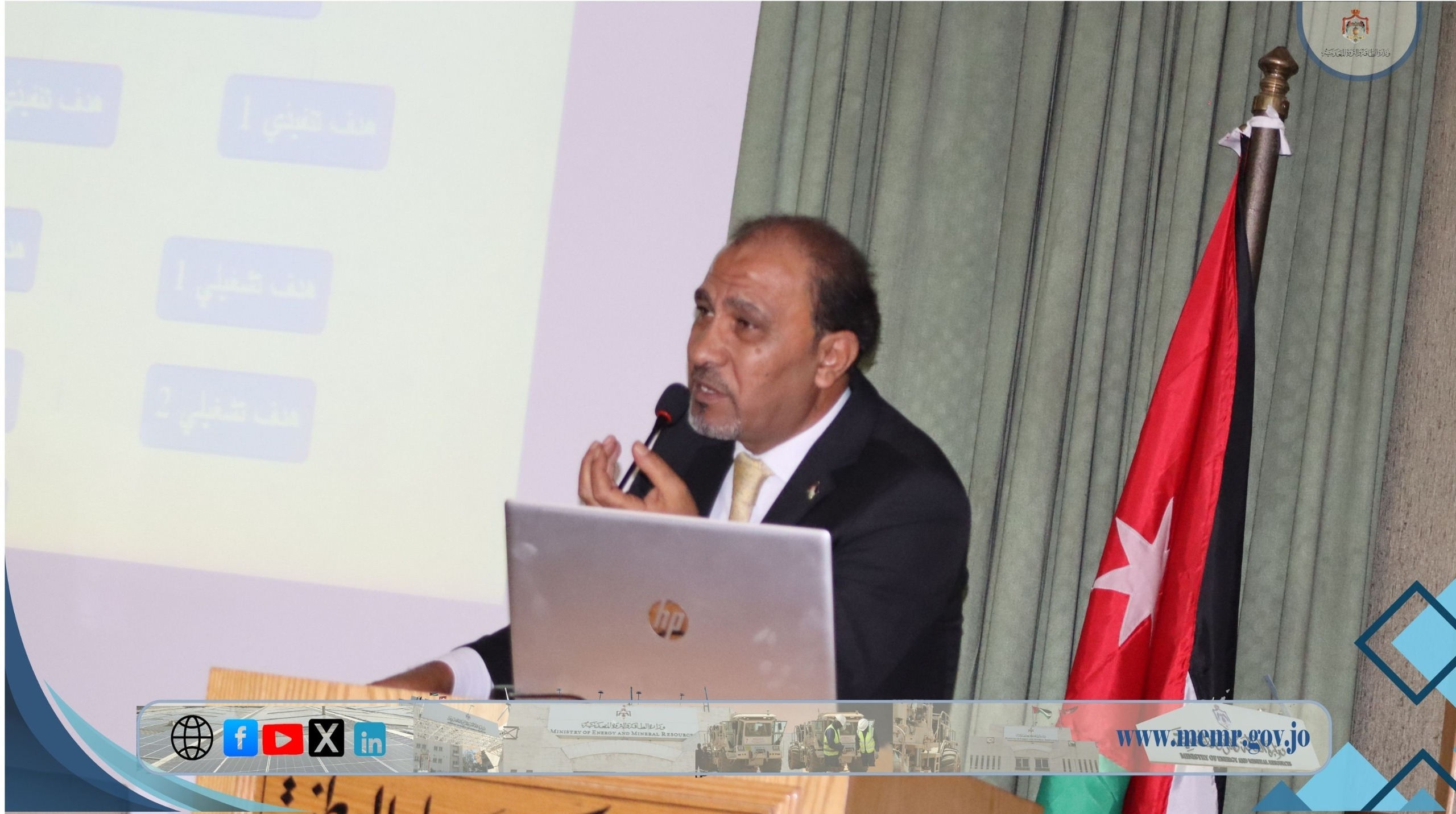
Photo album
June 22, 2025 – The Ministry of Energy and Mineral Resources (MEMR), in cooperation with the Civil Service and Public Administration Bureau, held an awareness workshop on Sunday titled “Skills for Managing and Preparing Performance Evaluation Reports for 2025.” The session aimed to support the administrative reform process and enhance the quality of government services, and was delivered by Ziyad Al-Natour from the Technical Support and Capacity Building Directorate at the Bureau.
During the workshop, Al-Natour provided a comprehensive explanation of the performance evaluation mechanism within the Human Resources System. He detailed how managers and department heads should fill out evaluation forms, and reviewed the key principles and concepts of performance management, including the pillars of the public policy for employee evaluation and the stages of performance management: planning, performance review, evaluation, announcement of results, and the appeals process. He also addressed the official controls that govern final evaluation results.
Al-Natour pointed out that performance reviews are conducted in two phases annually: the first from June 1–10, and the second from December 1–10. He added that the performance evaluation system allocates 10% for employees performing tasks with excellence and 40% for those completing tasks as required.
He explained that the performance rating levels are filled out using standardized forms, with the following grading scale:
- 85–100: Tasks performed with distinction
- 70–85: Tasks performed as required
- 60–70: Tasks performed at an average level
- 50–60: Tasks performed below average
- Below 50: Weak task performance
The workshop, organized by the Ministry’s Human Resources and Institutional Development Directorate, aimed to raise employee awareness of the importance of individual performance and its connection to institutional performance. It also sought to encourage employee contribution to continuous development, enhance knowledge and skills in evaluation, and improve the quality of annual performance reports to accurately reflect actual performance. This, in turn, supports the development of improvement plans by identifying strengths, weaknesses, and areas for growth.
Employees actively engaged throughout the workshop, and their input significantly enriched the discussions, contributing to the ongoing development of human capital at the Ministry and enhancing institutional performance as a whole.